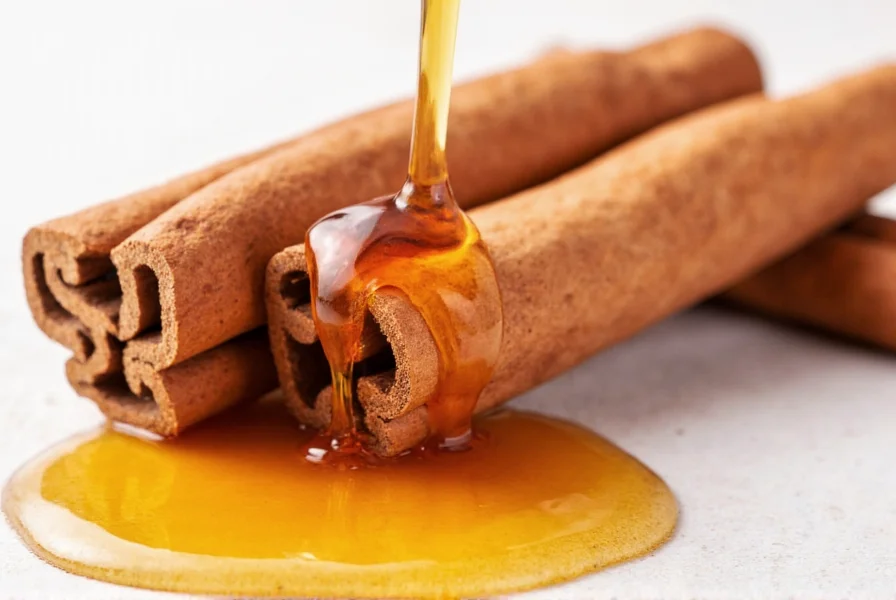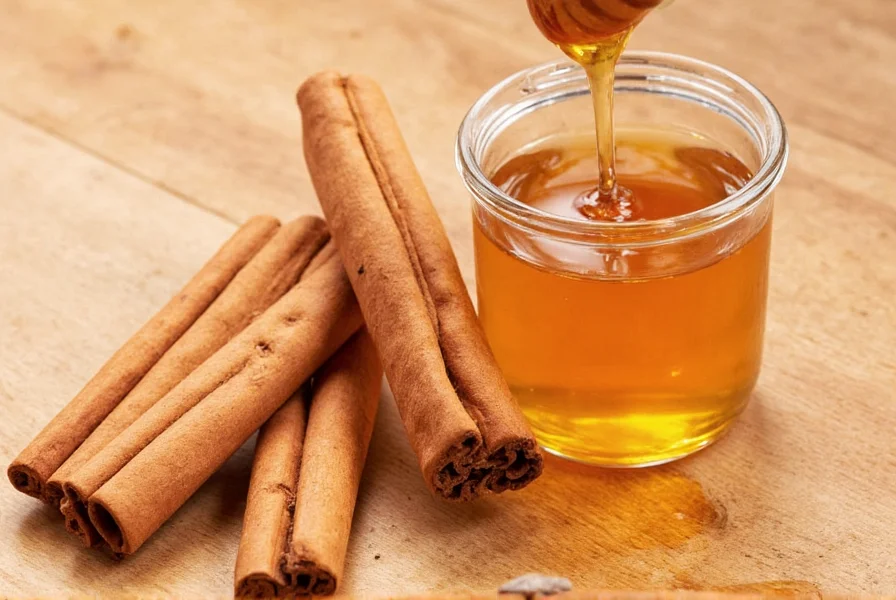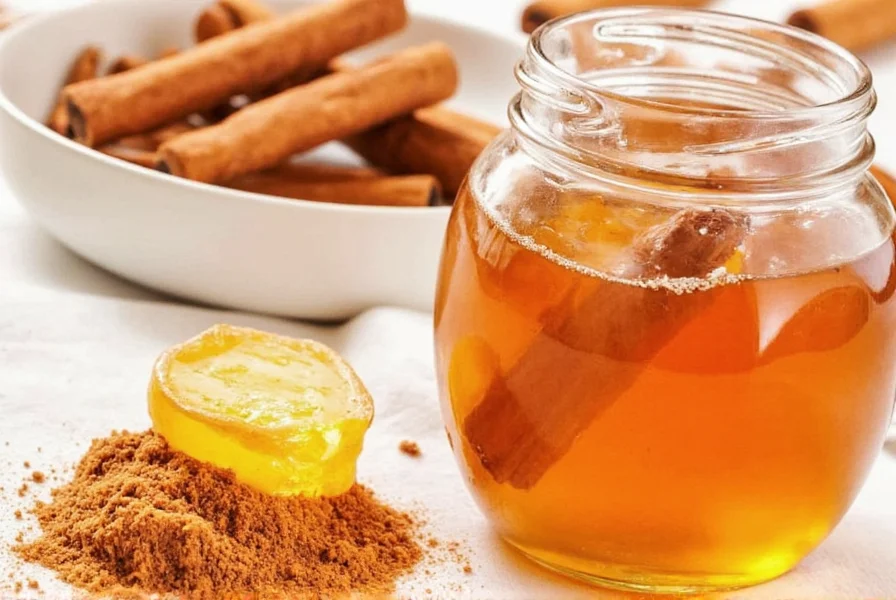When exploring natural wellness options, few combinations have captured public interest like cinnamon and honey. This dynamic duo has been celebrated in traditional medicine systems for centuries, but what does modern science actually say about their combined benefits? Let's examine the evidence without the hype.
Scientifically Supported Individual Benefits
Before examining their combination, it's crucial to understand what science says about each component separately. Cinnamon, particularly the Ceylon variety, contains compounds like cinnamaldehyde that have demonstrated anti-inflammatory and antioxidant properties in laboratory studies. Research published in the Journal of Medicinal Food indicates cinnamon may help improve insulin sensitivity, making it potentially beneficial for blood sugar management.
Honey, especially raw and unprocessed varieties, contains natural hydrogen peroxide and maintains a low pH that creates an inhospitable environment for bacteria. The Journal of Family Practice has documented honey's effectiveness as a cough suppressant, particularly for children over one year old. Unlike processed sugar, honey also contains trace amounts of vitamins, minerals, and enzymes that contribute to its nutritional profile.

Evidence for Combined Benefits: Separating Fact from Folklore
The popular notion that combining cinnamon and honey creates synergistic health effects lacks robust scientific validation. While both ingredients have individual merits, research specifically examining their combined effects remains limited and often inconclusive.
| Claimed Benefit | Scientific Evidence | Reality Check |
|---|---|---|
| Weight loss enhancement | Minimal human studies; mostly animal research | No significant evidence supporting weight loss claims |
| Blood sugar control | Strong for cinnamon alone; limited for combination | Cinnamon shows promise, but honey may counteract benefits |
| Immune system boost | Antimicrobial properties in both, but no synergy proven | May provide mild support but not a substitute for medical treatment |
| Arthritis pain relief | Some anti-inflammatory effects in cinnamon | Insufficient evidence for meaningful pain reduction |
Practical Applications with Realistic Expectations
While the scientific evidence for dramatic health transformations from cinnamon and honey combinations remains limited, there are practical ways to incorporate them into a healthy lifestyle:
- Natural sweetener alternative: Replace processed sugar with small amounts of honey and cinnamon in tea, oatmeal, or yogurt
- Cold and cough relief: A teaspoon of honey (for adults and children over 1) with cinnamon may provide soothing relief
- Blood sugar management support: Adding cinnamon to carbohydrate-rich foods may help moderate blood sugar spikes
For those interested in cinnamon and honey for blood sugar control, research suggests using Ceylon cinnamon ("true cinnamon") rather than the more common cassia variety, as it contains significantly less coumarin, a compound that can be harmful in large quantities. The typical effective dose studied for blood sugar benefits ranges from 1-6 grams (about 1/2 to 2 teaspoons) of cinnamon daily.
Safety Considerations and Limitations
Despite their natural origins, cinnamon and honey aren't without potential concerns:
- Honey safety: Should never be given to infants under 12 months due to botulism risk
- Coumarin content: Cassia cinnamon contains high levels of coumarin, which may cause liver damage with prolonged high consumption
- Blood sugar impact: Honey still affects blood glucose levels, making portion control essential for diabetics
- Allergic reactions: Both ingredients can trigger allergies in sensitive individuals
Individuals taking blood thinners should exercise caution with cinnamon due to potential interactions. Those with diabetes should monitor blood sugar closely when incorporating these ingredients, as cinnamon and honey weight loss benefits are often overstated in popular media.

Evidence-Based Recommendations
Based on current research, here's how to thoughtfully incorporate cinnamon and honey into your wellness routine:
- Choose Ceylon cinnamon for regular consumption to minimize coumarin exposure
- Limited to 1-2 teaspoons of cinnamon daily for potential health benefits
- Use raw, unprocessed honey for maximum potential benefits
- Consume honey in moderation (1-2 teaspoons daily) due to sugar content
- Consider taking cinnamon supplements only after consulting with a healthcare provider
Remember that natural remedies with cinnamon and honey should complement, not replace, conventional medical treatments. The most significant health benefits come from incorporating these ingredients into an overall balanced diet and healthy lifestyle.
Conclusion: A Balanced Perspective
Cinnamon and honey each offer distinct health properties supported by varying degrees of scientific evidence. While their combination makes for a delicious addition to many foods and beverages, consumers should maintain realistic expectations about their health impacts. The most compelling evidence supports cinnamon's potential role in blood sugar management and honey's effectiveness as a cough suppressant.
When exploring cinnamon and honey immune system support claims, it's important to recognize that no single food can dramatically boost immunity. Instead, these ingredients can contribute to an overall healthy dietary pattern that supports immune function. As with any natural remedy, consult with healthcare professionals before using cinnamon and honey for specific health conditions, especially if you have underlying medical issues or take medications.
Does cinnamon and honey really help with weight loss?
Current scientific evidence does not support significant weight loss from consuming cinnamon and honey. While cinnamon may modestly improve insulin sensitivity which could indirectly support weight management, honey contains calories and sugar that could counteract any potential benefits. Sustainable weight loss requires comprehensive lifestyle changes rather than relying on specific food combinations.
What type of cinnamon is best for health benefits?
Ceylon cinnamon (often labeled as "true cinnamon") is generally preferred for regular consumption due to its significantly lower coumarin content compared to the more common cassia cinnamon. Coumarin, found in high concentrations in cassia cinnamon, can cause liver damage with prolonged high consumption. For daily use, Ceylon cinnamon provides the potential health benefits with reduced risk.
Can cinnamon and honey help control blood sugar levels?
Cinnamon shows promise for improving insulin sensitivity and blood sugar control based on several studies, with effects typically seen at doses of 1-6 grams daily. However, honey contains natural sugars that will raise blood glucose levels, potentially counteracting cinnamon's benefits. For blood sugar management, cinnamon alone may be more beneficial than the combination with honey. Individuals with diabetes should consult their healthcare provider before using these as complementary approaches.
Are there any risks associated with consuming cinnamon and honey regularly?
Yes, potential risks include: coumarin exposure from cassia cinnamon (which may affect liver health), blood sugar spikes from honey (particularly concerning for diabetics), possible interactions with blood thinners, and allergic reactions in sensitive individuals. Honey should never be given to infants under 12 months due to botulism risk. As with any dietary component, moderation is key, and those with health conditions should consult healthcare professionals.











 浙公网安备
33010002000092号
浙公网安备
33010002000092号 浙B2-20120091-4
浙B2-20120091-4